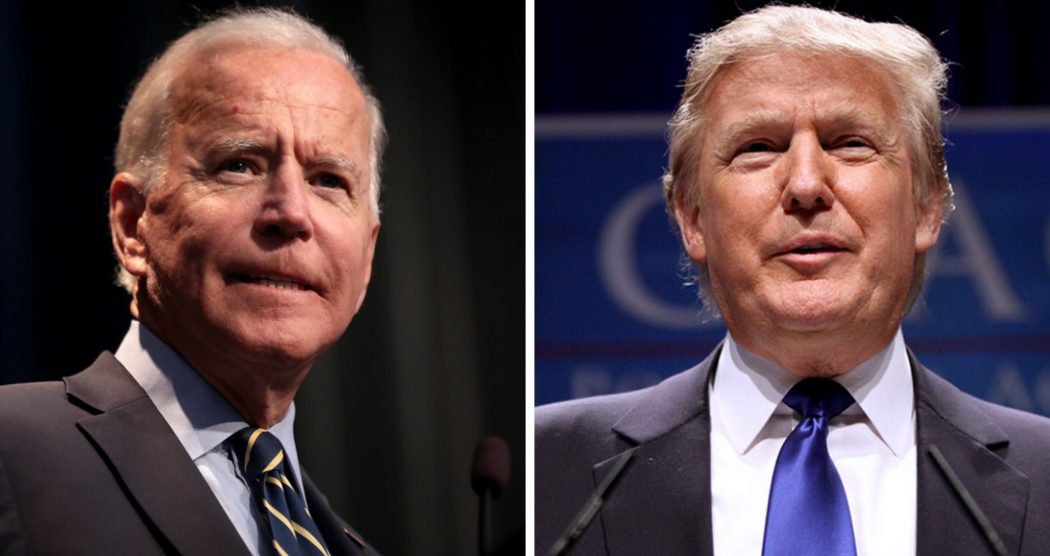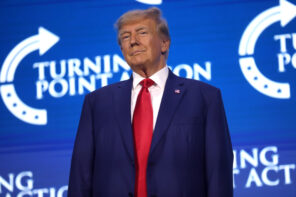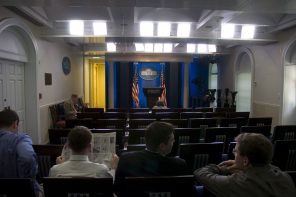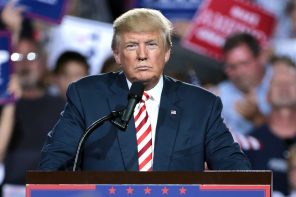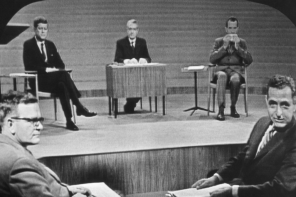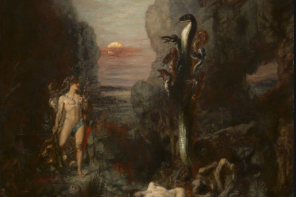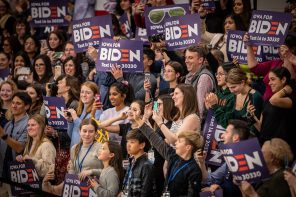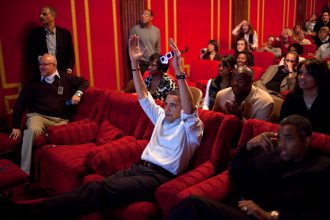The Clash famously asked “should I stay or should I go now?” — If they go, “there will be trouble,” but if they stay “it will be double.” Given lead singer Mick Jones’ risk assessment, the correct choice seems obvious. Go, duh! But The Clash never come to a decision, never announce whether they’re staying or going, and I’m starting to understand why.
On the night of Tuesday, September 29, many Americans considered The Clash’s question. Google searches for ‘move to Canada’ skyrocketed. A friend in Connecticut sent my mom an email titled “HELP US” asking about job prospects in Ottawa. Meanwhile, students across the continent attempted to wash the night down with elaborate drinking games— sip every time Biden blinks away tears, chug when Trump says “it will disappear” — a collective draining of increasingly dejected beers.
Everybody — candidates, moderators, viewers, voters — lost.
The occasion in question is, of course, the American presidential debate, which CNN’s Dana Bash generously labelled a “shitshow”. When the ninety-minute eternity was over, what had viewers learned? Biden is as old as we thought, has a slick set of teeth, knows where the camera is; Trump is also old, still plans to cripple American democracy, wants white supremacists to “stand by”; side by side, the two candidates match an orange creamsicle, and we’re actually capable of pitying a FOX News host. Biden dangled hints of a platform throughout the debate, a cue for Trump to wrench the conversation back to Hunter Biden conspiracy theories. Everybody — candidates, moderators, viewers, voters — lost.
In the past, I have idolized rationality when faced with lose-lose decisions. Last election, I supported Hillary Clinton, a deeply flawed candidate and the victim of profound misogyny, rather than her opponent, who had bragged about committing sexual assault. I was frustrated by the ‘two evils’ framing that kept potential voters home. This year I felt frustrated again by the irrational equation of a lame, disappointing candidate with a hateful, destructive one. The kid that never understood why The Clash wouldn’t just avoid double trouble and go still questioned why people so often weigh unequal losses equally.
This year I felt frustrated again by the irrational equation of a lame, disappointing candidate with a hateful, destructive one.
My strong belief in rational action began to flip when exposed to perhaps the most rationality-driven field of all: game theory.
Game theory is the mathematical study of strategic interaction between rational decision-makers. The most famous game theory scenario in the field is The Prisoner’s Dilemma. In this imaginary interaction, you have been arrested after a bank robbery and placed in a separate room from your co-conspirator. Both of you are given the same choice; either talk — rat your partner out — or stay quiet. Possible outcomes are as follows:
- If you both stay quiet, each of you receives a one-year sentence.
- If one of you talks and the other stays quiet, the one who talks walks free, while the one who stays quiet receives a five-year sentence.
- If you both talk, you each receive a three-year sentence.
The Prisoner’s Dilemma bares its teeth when you consider each player’s optimal strategy. Your best move is always to talk. Look at the three options: no matter what your partner does, you’ll serve less time by ratting them out. However, because your partner’s logic is identical, game theory predicts you’ll both choose to talk. You’ll each serve three years when you could have each served one by both staying quiet. What gives?
The Prisoner’s Dilemma presents a lose-lose decision. Yes, some outcomes are worse than others, so players can try to act rationally. But attempts at reasoning are undermined by a structure that promotes distrust over cooperation and offers only unappealing outcomes. This could easily be a description of the American presidential election.
On September 29, we were forced to ask (as we had many times before) how we got here. How did 67 million of us end up watching two old white men interrupt each other on stage while the citizens they’re supposed to represent suffer? I am voting for the lesser of two evils once again — for a better chance at solving current crises — but I am tired of forced rationalism within a broken, broken game. We should all be tired. We should not settle for Biden winning the debate simply by showing up; we should be frustrated that his showing was all he needed to look like the better candidate. No matter who wins the election, we should be outraged that our president will have a track record of upholding systems of oppression.
In today’s American political system, rational action is impossible. As long as Black voters have to wait an average of 29% longer at the polls than white voters (and to choose between these two candidates), a rational vote is impossible. As long as new, discriminatory voting laws disenfranchise millions of minority voters, a rational vote is impossible. As long as an increasingly diverse Democratic party has to settle for the safe nominee to defeat a racist demagogue, a rational vote is impossible. The only rational thing to do is to overhaul this entire framework. The how of that will take a lot of thinking and a lot of work, some of which is already being done.
My conclusion? I believe the most important question The Clash asks actually comes at the end of verse three; “should I cool it or should I blow?” Blow, duh!

